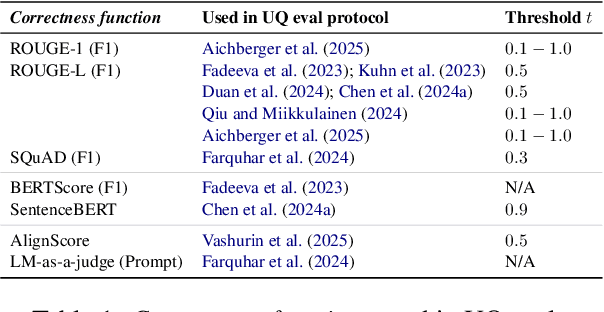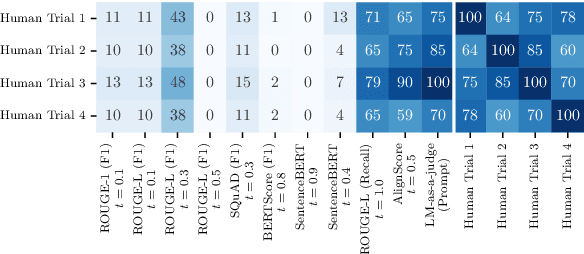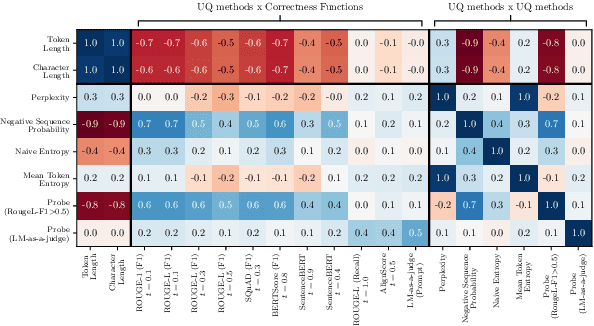Revisiting Uncertainty Quantification Evaluation in Language Models: Spurious Interactions with Response Length Bias Results
Paper and Code
Apr 18, 2025



Uncertainty Quantification (UQ) in Language Models (LMs) is crucial for improving their safety and reliability. Evaluations often use performance metrics like AUROC to assess how well UQ methods (e.g., negative sequence probabilities) correlate with task correctness functions (e.g., ROUGE-L). In this paper, we show that commonly used correctness functions bias UQ evaluations by inflating the performance of certain UQ methods. We evaluate 7 correctness functions -- from lexical-based and embedding-based metrics to LLM-as-a-judge approaches -- across 4 datasets x 4 models x 6 UQ methods. Our analysis reveals that length biases in the errors of these correctness functions distort UQ assessments by interacting with length biases in UQ methods. We identify LLM-as-a-judge approaches as among the least length-biased choices and hence a potential solution to mitigate these biases.
 Add to Chrome
Add to Chrome Add to Firefox
Add to Firefox Add to Edge
Add to Edge